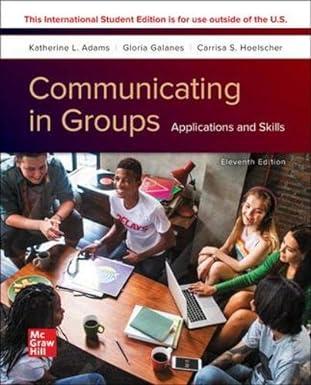After the deadly bombings during the Boston Marathon in April 2013, many Americans turned to the Internet
Question:
After the deadly bombings during the Boston Marathon in April 2013, many Americans turned to the Internet to gather as much information as they could about the still-emerging story. A number of news and image-sharing websites allowed anyone interested to review photos from the marathon and attempt to locate the perpetrators. Users marked up photos to point out suspicious activity and eventually identified three suspects. None of these guesses were correct. Despite its attempts, the online community that formed in this situation was led astray by a serious case of groupthink.
Instead of allowing users to look at images independently and then vote on those that seemed suspicious, websites like Reddit sought a more exciting online experience. They encouraged users to work together to identify odd activity and to comment on one another’s postings. The fact that viewers had to consider others’ comments when evaluating photos influenced their own thinking, and some comments were given more weight because they were more noticeable than others. Additionally, after the first photos were posted, it is possible that users found ways to spot suspicious activity within them instead of forming their own opinions first. Instead of being allowed to think independently, the crowd fell victim to groupthink.
Consider your own experiences watching TV or reading online reports of terrorist actions. To what extent do you think mediated reports of these events make the public susceptible to groupthink? Are there ways that our culture can reduce the effects of groupthink on the way we assign meaning to mediated messages?
Step by Step Answer:

Communicating In Groups Applications And Skills
ISBN: 9781260570786
11th Edition
Authors: Katherine Adams, Gloria Galanes





